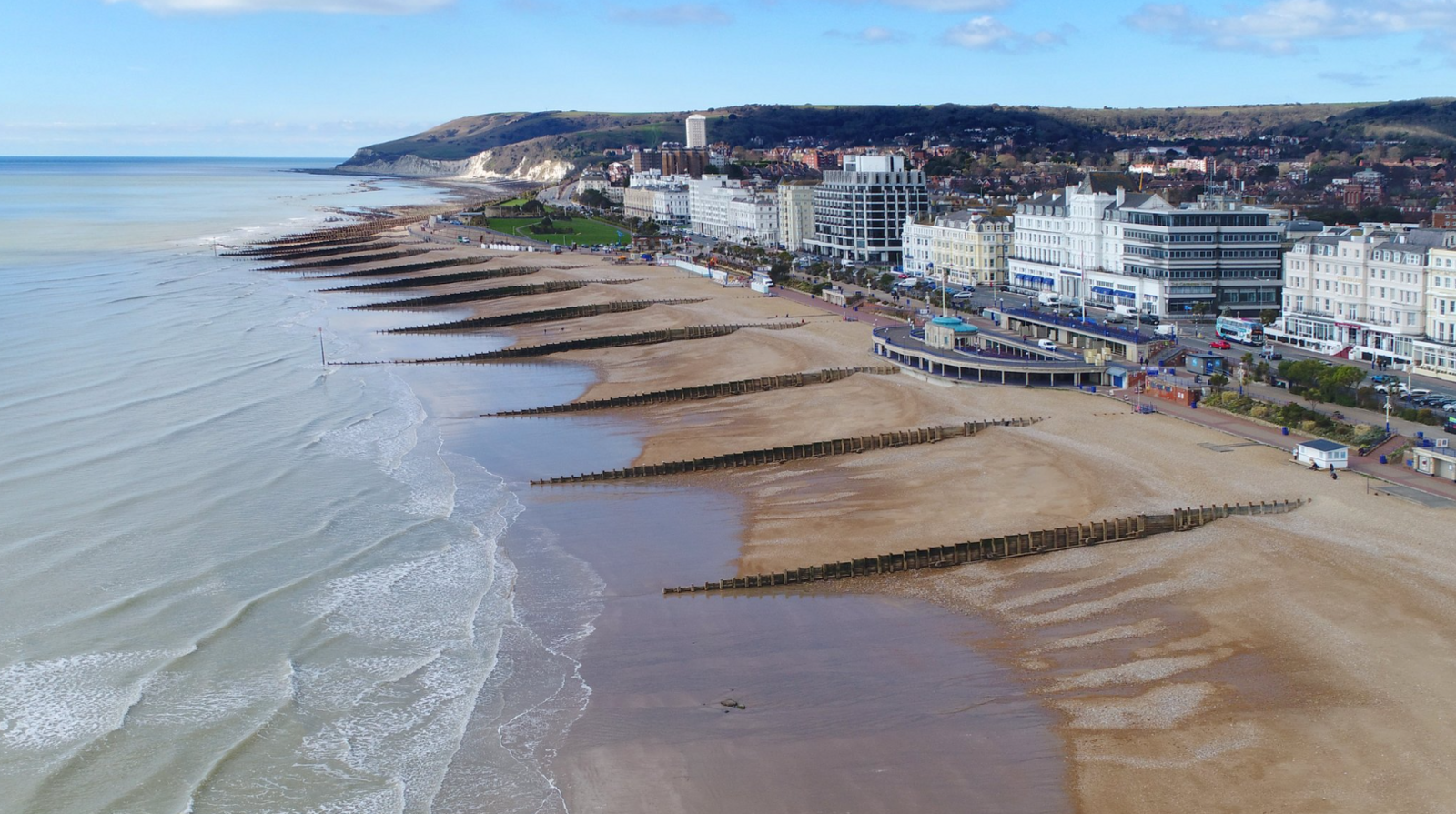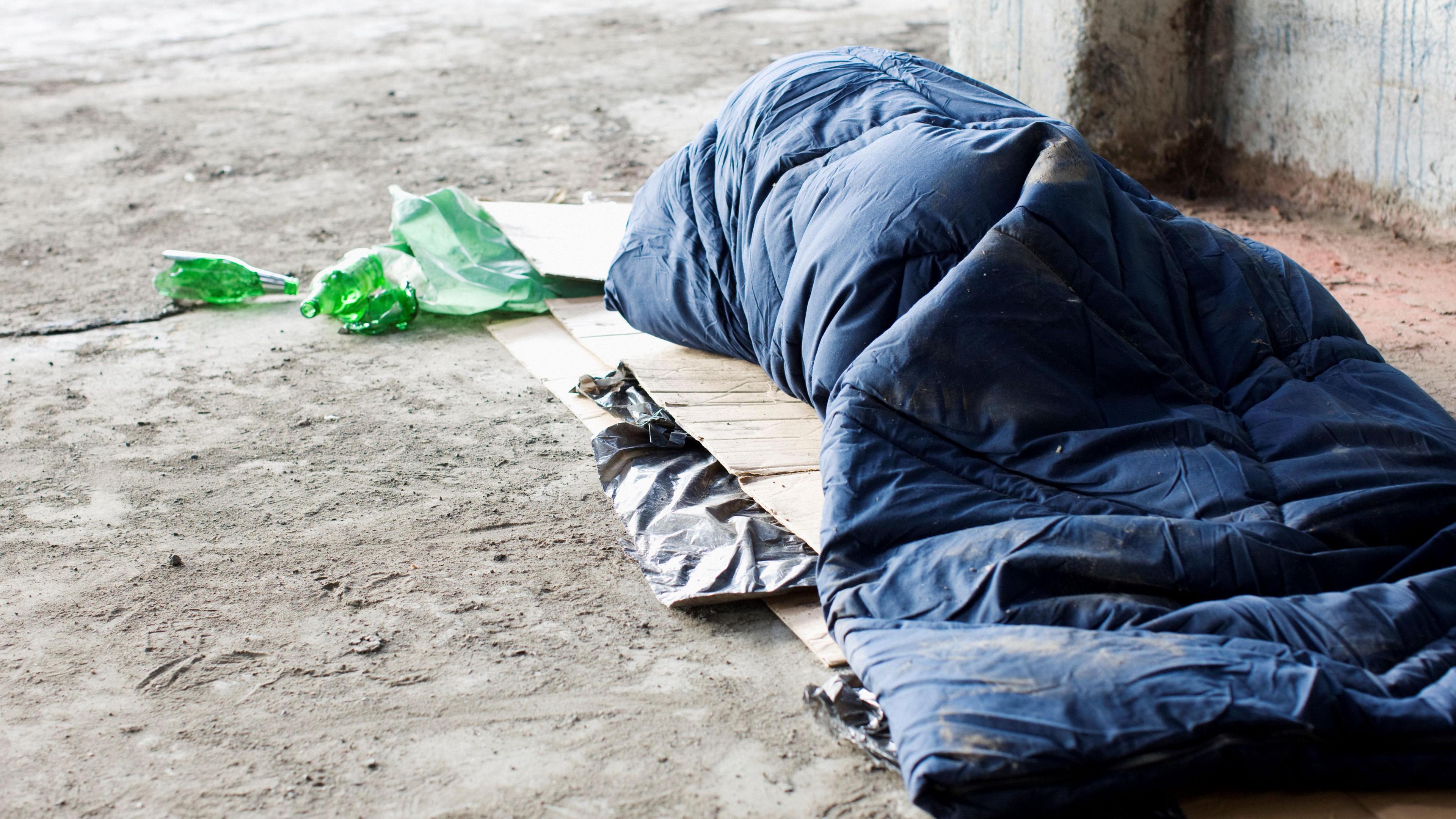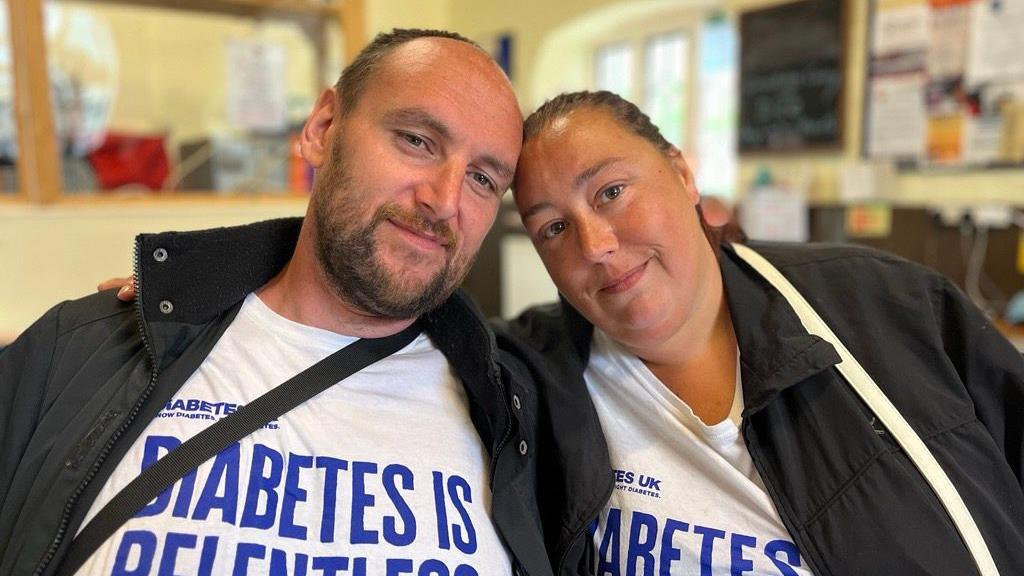Inquest for men who died after being housed out of Brighton

Inquests for two homeless men who died in Eastbourne have taken place
- Published
Inquests have taken place for two homeless men from Brighton who died after being placed in a hotel 22 miles (35km) away.
The two men stayed in emergency accommodation at the Ellesmere Hotel in Eastbourne and died within a week of each other in separate incidents at the end of April this year.
Brighton & Hove City Council was accused by the deputy leader of Eastbourne Borough Council of "directly influencing" their deaths with an "out of sight, out of mind" strategy.
Nineteen percent of homeless people in Brighton are moved out of the city – known as an out-of-area placement – but coroner Fiona King did not suggest their deaths were directly as a result of being placed outside the city.
Daniel Ginsberg, 60, a former rail worker, was found in his hotel room on 6 May this year after a neighbour reported a smell and flies.
The inquest on 21 October was not able to confirm an exact date or cause of death as no one had discovered him for several days.
Several applications were made for Mr Ginsberg to stay in temporary accommodations in Brighton but his needs were "deemed too high".
He had been living in a YMCA supported accommodation for ten years until October 2023 when the charity sold the building, the inquest heard.
'Exploited'
His case worker felt that a supported residential accommodation was more suitable and made a request for adult social care to assess him on 29 January this year because he was being exploited.
Mr Ginsberg was sent to Eastbourne as the inquest heard there was no available housing stock in Brighton.
Mr Ginsberg had been evicted from two temporary accommodations in Brighton. The first eviction was for smoking in his room at West Pier Residence and the second was for allowing visitors.
But Mr Ginsberg, who was alcohol dependent and described as vulnerable, revealed to his case worker at the end of January that he had been cuckooed by members of the street community who took money from him while living in the second hotel at Grand Parade.
Cuckooing is the practice of taking over the home of a vulnerable person, often for illegal drug dealing or taking money from them.
'He did not stand a chance'
His friend and former colleague Deborah Jagniaszek described him as "funny, chatty and cheerful" but "felt the drink was taking over" when she last saw him.
Her letter read at the inquest said: "All his friends [and support] were in Brighton, in Eastbourne he was alone. He did not stand a chance."
After moving to Eastbourne, his housing situation was still Brighton & Hove City Council's responsibility but the duty of care fell to authorities in Eastbourne, according to his case worker.

Most out of area placements from Brighton go to Eastbourne, pictured
The inquest heard 19% of homeless people are sent out of the city in out of area placements.
Simon Court, a senior lawyer for BHCC, confirmed that Eastbourne is the most common location for homeless people in Brighton and said the national average for councils is 30% for out of area placements.
Mr Ginsberg was a lower priority compared to groups such as families on the list in terms of getting them housing in Brighton, the inquest heard.
Ms King ruled the death as an open conclusion. Open conclusion verdicts are where there is not enough evidence to rule a cause of death.
She did not directly suggest his death was caused as a result of being moved to Eastbourne.
She also determined that the death of Stephen Carr, 38, a former landscaper, was not as a result of staying in Eastbourne.
Mr Carr had been staying with his father in Kingfisher Court in a council estate in Whitehawk, Brighton.
The flat had been infested with bed bugs, so his father Tony Carr was moved to the Ellesmere Hotel in Eastbourne on 21 February. His son, who had a history of drug addiction, joined him after a being released from prison on 4 April.
The city council was aware Mr Carr was in prison but not that he had been released, the inquest heard.
Mr Carr was found by his dad on 27 April slumped over after they had been watching a film in their hotel room. His dad had fallen asleep and found Mr Carr slumped in the bathroom.
Fiona King said: "I do not find that the accommodation has affected his death."
She determined that Mr Carr died from a mixture of drugs in his system which led to cardiac arrhythmia but there was not a "fatal intention".
Follow BBC Sussex on Facebook, external, on X, external, and on Instagram, external. Send your story ideas to southeasttoday@bbc.co.uk , external or WhatsApp us on 08081 002250.
Related topics
Related stories
- Published7 July

- Published8 July
